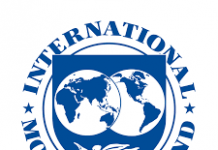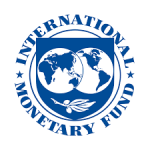New Delhi, Jun 13 (UNI) Listing expectations from upcoming Union Budget, Trade Promotion Council of India (TPCI) here on Thursday said the government needs to address liquidity and manufacturing constraints by increasing the lending cap of the Nationalised banks for credit financing and ensure adequate liquidity.
”India is at the cusp of global attention as its reputational and business equity has been growing sustainably at global stage. The government needs to address liquidity and manufacturing constraints by increasing the lending cap of the Nationalised banks for credit financing and ensure adequate liquidity. The private players including NBFCs may also be allowed,” TPCI chairman Mohit Singla said in a statement.
The focus on agri-exports and food processing can take India to the position it has been aspiring since long, the chairman said, adding that also, it has the great potential to address the farm distress and employment generation, the two issues the country has been struggling in recent times.
The corporate tax was announced to be reduced to 25 per cent in 2015, today it is 30 per cent (for companies with annual turnover of 250 crore). The TPCI said the corporate tax reduction of 5 per cent may be extended to all entities irrespective of cap. ”This will also help attract FDI to India,” he said.
”Research and Development (R&D) should include product development and its value chain, as well so that the same tax benefit is realised by exports sector. Product development is the entire process of designing, creating, and marketing new products or existing products with new features, therefore at all stage they need to be incentivised,” the council said.
Suggestions include incentivising the exporters whose geographical diversification is more and not concentrated in terms of outreach and extension product and country wise.
The TPCI said the government should incentivise thrust sectors like furniture and electrical where India has huge competitive advantage to boost exports
”The government has extended IGST (Integrated Goods and Service Tax) and compensation cess exemptions for goods procurement under certain export promotion schemes till March 31, 2020. This may be thought of a permanent call instead of an extension,” it said.
Companies want to tap full potential of their foreign factories. They establish and manage their foreign plants to benefit only from tariff and trade concessions, cheap labor, capital subsidies, benefits of trade agreement and reduced logistics costs. This is going to increase India’s presence in foreign economy, like the Chinese companies are doing in African region and Latin American region especially for MSME.
The council said the interest subvention should be expanded for the entire MSME sector rather than only for export purposes and there should be tax incentives for companies investing in organic farming including horticulture. Restrict tax concessions to only farms which either do organic farming or export.
The TPCI said tax holiday for five years for companies investing in food processing sector and companies working in areas of GIs and IPRs need to be incentivised.
”This budget must address supply constraints to make the export industry competitive, incentives therefore should focus on the supply side of manufacturing. We need to build upon our production capabilities and reduce the trade deficit with competing countries,” it suggested.
The TPCI said incentives may be given to lead firms in ancillary manufacturing to create an ecosystem from where domestic manufacturing can take place and tax holiday of at least five years may be given for investors in infra and logistic chain.
Availability of easy loan for the intermediately goods should be used in production of finished products for exports. the TPCI said, adding that the government should address the shortage of export financing by increasing the total lending cap for the national banks and export guarantee for places, where there are no banks.
To Listen to this News click on the button below the image












